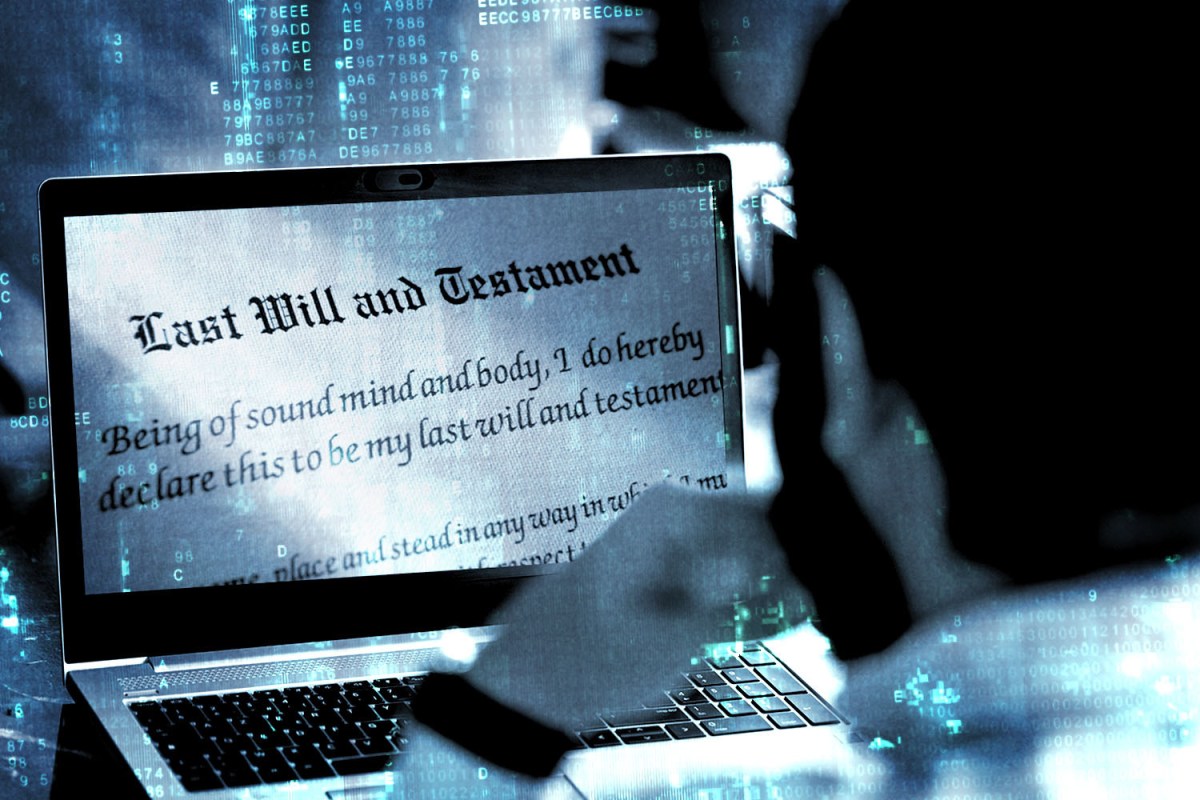Recently, I’ve been thinking a lot about dying.
Actually, I wasn’t spending too much time pondering about how I was going to shuffle off this mortal coil (outside of pandemic reasons), but my family and significant other have apparently been pondering my demise for a while — for practical reasons, they say.
I’m “only” 49, but I now co-own property and have, well, actual things to pass along. And like anyone else in my age group and throughout the past few years, I have witnessed unexpected passings of people in my life who I thought would have been with us for a longer time.
Basically, I’ve been pressured (with good reason) to write up a will. And I knew that this was something I could do online, although I had doubts: Would these wills hold up in courts? Aren’t all states’ laws on wills and trusts different? If this is so easy to do online, why would anyone ever use an expensive lawyer?
To assuage my fears, I consulted with Mitch Mitchell, the Associate Counsel of Estate Planning at Trust & Will, which specializes in estate planning and offers most of the paperwork online for $39 (for parents with minor children not quite ready to create a will) up through $699 for state-specific, customized trusts for couples. He talked us through when to make a will (now), what to look out for and even who should probably still consult a lawyer.
(Note that while we had a good talk with T&W, this is not a specific endorsement of a single online will maker; there are certainly other options.)
InsideHook: What was the genesis of Trust & Will?
Mitch Mitchell: The co-founders, who started Trust & Will in 2017, they were all in a transitional stage in life. They had assets, they had things to think about. And the idea was, why can you pretty much do anything online — mortgages, real estate, buying clothes — but not a will? Why isn’t this easier?
So, are you just online estate lawyers?
I was an estate planning attorney for a decade before joining. We have a small legal team, but we’re more of a software/tech company, not a law firm. What we do is narrowly tailored — right now, we have a will, trust and guardian product, and online there’s a guided interview to ask you what’s a good fit. We also offer access to lawyers; it’s an add-on benefit. We’re more like TurboTax for wills.
Why aren’t people just doing their wills online if it’s this simple (and cheaper)?
Coming from a private practice, I can say that a lot of people just don’t want to think about their own mortality at all. There are difficult questions you need to answer, especially if you have kids — who do you trust as a guardian if something goes wrong?
It’s interesting, because the Covid pandemic did accelerate some of this thinking and encouraged people to not put it off. A stat we like to throw out is that 60% of Americans don’t have an estate plan — our idea is to make it easy for you.
But you’re not for everyone.
We’re not for everyone. Some people do need to go to a lawyer and might feel more comfortable doing that. If you’re high net worth and if you’re generally a person who needs more complex planning or tax planning, we’re not a good fit. But if you’re comfortable doing taxes or other significant transactions online, you can be comfortable doing a will.
How about age? When should people start thinking about making out an estate plan?
The right answer is if you’re over 18; anybody over 18 can make a will. Everybody owns something and has stuff they need a plan for, right? Beyond that platitude, there are triggering events that get people thinking, like when you have kids or a new addition to your family, if you buy/sell a house, if you come into wealth from inheritance, you have property, and so on. And you can always make an update when something happens [for Trust & Will, updates are free for a year and a charge afterwards]/
If you don’t have a written plan, will or trust, the problem is that there will be a plan made for your estate, with some default rules about who’s in charge, who inherits property and who the administrator is.
What’s the most common question you get?
“When do I know I need to make a plan?” There’s also a misconception that estate planning is for a particular kind of person, like the wealthy. It’s for everyone.
What’s the biggest misperception about e-wills?
There’s an apprehension about whether it’s valid. You can go online and find a form, but what distinguishes us is that the documents we have were designed by estate planners for every state. Not every form in a Google search is going to be like that. There’s a misperception that any form online is created equal.
You have three different services — Guardian, Trust and Will. Can you explain the differences?
A will is a document that only takes effect when you die. You sign it when you’re living, you create it, and you decide what happens to your property and who’s in charge of distributing assets.
The most common type of trust we have is a revocable living trust — while living, you fund it with your assets. If I own a house, I fund it while still alive and transfer it to the trust, and that asset no longer has to go through probate. If i have a trustee, I don’t have to go to probate court; they can manage and distribute to my beneficiaries in my trust.
What are some unique issues with estate planning?
A common issue people think about is survivorship — basically, updating your will to say if this person [mentioned in the will] dies, I want their share to go, say, the grandkids. You can have contingencies when you have a written plan. It’s common to have that kind of language.
Since I wouldn’t want to just rely on one website, what are some other resources for estate planning that you’d recommend?
Every state has a state bar or equivalent, and they often have self-help documents. A good example would be if you’re searching NY power of attorney, a good place to look would be something like the NY Bar Association — they might have a self-help section.
The Charge will help you move better, think clearer and stay in the game longer. Subscribe to our wellness newsletter today.
























